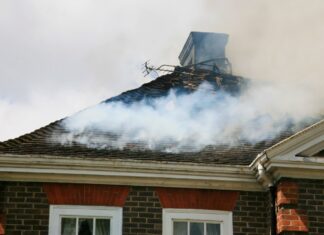
Wisdom for Cherry Hill’s Class of 2012
Board of Education President Seth Klukoff shared his words of wisdom to the Class of 2012 at Temple University’s Liacouras Center last week:
Throughout most of my career, I’ve carried around a quote from the author and scholar Isaac Asimov, and it reads as follows: “Anti-intellectualism has been a constant thread winding its way though our political and cultural life, nurtured by the false notion that democracy means that ‘my ignorance is just as good as your knowledge.’”
Twenty years ago, when I first came across those words, I found them as wise as I do today. And today, I believe those words are even more relevant.
Why do I believe that? For one, inherent in that quote is the assumption that thoughtful, rational, tolerant dialogue fuels a democracy. Also inherent in that quote is the warning that such a dialogue, which ought to be grounded in reason and fact, is in grave danger of disappearing. It’s replacement, an endless volley of uninformed, ubiquitous opinion. Everyone is right. No one is wrong. On to the next discussion.
That’s where I believe we are today. We live in a culture of extremes, where shades of gray, the places where truth and fact exist, are discredited, overlooked, not considered cool. Try to present an argument against the extreme, to marshal facts and logic, and you are perceived by that extreme as being defensive, your arguments are met with derision and, even worse, you are personally attacked in the coarsest, basest of language. And when that extreme position is voiced by a mob of many, and amplified by an uncritical media, and when their simple messages can spread virally in a nanosecond via YouTube, Facebook, Twitter or other social media platforms, you no longer have discussion or debate. You have unthinking, unfettered chaos.
Whatever the issue, be it the environment, health care, the economy, or the fate of public education, the formula appears to be the same. Think about it. When was the last time our nation truly had a responsible conversation about global warming, access to affordable health care, employment, and our schools? And think about this. Is our nation even capable of having those critical discussions today, or worse, do we even want to?
I do wonder why our country has reached a point where civil discourse has seemingly become outmoded, where opinion masquerades as fact, where nastiness and disregard for language hide behind the anonymity of email or online comments, and where lies cloaked as truth are trumpeted loudly and brashly.
I wonder about this. I do.
But you know what; I think I know how things can get better.
The answer, I believe, lies in public education, in the responsibility of educators to teach the importance of critical thinking, to foster questioning and reasoned argument in the classroom and out, to place high value on the beauty of words well written or well spoken, to steadfastly articulate, and defend, the essential importance of what is fact and what is fallacy, and to prepare students to embrace those responsibilities themselves, so that they may practice them as informed, thoughtful citizens.
You see, it is through public education that students are exposed to a mosaic of diverse viewpoints and backgrounds, have the opportunity to engage with peers who think differently, hold different values, and have different life experiences. And it is through public education where tolerance for those differences are learned and celebrated, rather than dismissed and scorned.
I truly believe that public education can help create this change. And during a time when that institution is being unjustly vilified by elected officials and ideologues, it must be supported more than ever before. Public education can and must become the bulwark against the continuing tide of anti-intellectualism.
Graduates of Cherry Hill East and West, I look to all of you to draw upon your education, to think before you write, listen before you argue, challenge the logic of your own assumptions, explore the value of the opposing opinion and wrest yourselves from the comfort of the known. Those are the lessons you must practice as you move forward in your lives, and that you must ask of your peers to practice as well. For it is exactly those lessons that can ultimately bring down the false equivalence of ignorance and knowledge that is so harmful to our society.









